First time spraying horticultural oils - help me out :)
Cori Ann - H0uzz violated my privacy
7 years ago
Featured Answer
Sort by:Oldest
Comments (40)
Vaporvac Z6-OhioRiverValley
7 years agolast modified: 7 years agoCori Ann - H0uzz violated my privacy thanked Vaporvac Z6-OhioRiverValleyRelated Discussions
Is neem oil superior to insecticial soaps and horticultural oils?
Comments (11)I'd dispute the contention that neem oil/extracts are more toxic than fatty acid-based insecticidal soaps. ANY substance, organic or not, can be toxic if applied in great enough concentrations. Neem has been used as an herbal remedy and dietary supplement by populations in its natural locale for centuries with documented beneficial effects. The big advantage to neem oil over other organic controls is its adaptability for numerous purposes, as both an insecticide and fungicide and as an effective control of other disease pathogens. There is a very scholarly article on the pros and cons of neem oil/extracts available online, however it requires membership to the site or payment to download and view. A google search with the key words "neem oil, harmful side effects" should turn it up. Otherwise the attached is a good, well-rounded treatise on this organic control. Here is a link that might be useful: Neem oil...See MoreHorticultural oil for leaf spot?
Comments (6)First, it is extremely unusual for the same disease problems to affect a whole range of different plants - they are typically very plant-specific (the exception being powdery mildew). Therefore, it is highly unlikely that the same problem is affecting all your plants and so the same blanket treatment will not help. It is of primary importance to get an accurate diagnosis of the specific problem for each plant in question and then utilize the appropriate remedy. Hopefully someone on staff at a better garden center can help or check out a Master Gardener clinic or your local extension service. Often, the incidence of a lot of plant problems is more culturally related than an actual disease issue - fix the growing condition and the problem disappears. Fungal issues like leaf spot are often related to weather, overwatering, watering at the wrong time of day (leaving water on foliage overnight), poor drainage, lack of air circulation or even proper garden clean-up and sanitation. And mulching in winter can help a lot - a good layer of mulch smothers fungal spores that can overwinter on the soil surface and prevent them from splashing up with rains and reinfecting. Your hydrangea issue is most likely cercospora leaf spot, a very common problem with a number of hydrangea types. If you read the attached info sheet, you'll notice that the condition is primarily due to cultural issues. Correct those and you will correct the problem. Here is a link that might be useful: Cercospora leaf spot....See MoreConifers & Horticultural Oil Spray
Comments (12)mites can also be taken care of.. in the ordinary backyard with a stream of water ... why in the world would you need anything else ... just because you have it???? i am a bit confused .. just BSing here ... i would never argue with +om on tree stuff ... how an oil works.. prophylactically .... i was assuming the egg part ... which is technically prophyc. for the adult ... but i dont understand how covering a branch .. lets say ... with oil would stop some bug in a few months from now, when winter passes ... sulphur for fungicide.. i should have remembered that from my rose growing 20 or 30 years ago ... you know.. back in the day ... first house.. single.. money for any whim.. mom's name rose .. family heritage of having roses since i was a kid.. got a little carried away.. and started collecting hybrid T's .... i was quite the chemical warrior ... spraying and fert'ing them every 4 to 6 weeks.. i still have a bin of all the chems .... get married.. moved.. roses dont grow in sand, so that collection was terminated ... and i decided .. with the kids.. to go spray free ... and you know what... spraying things is a waste of time.. money.. effort.. and an affront to your health ... plagues come and go.. and frankly.. little if anything dies if you simply dont spray ... frankly ... its the most organic method.. and if things get too ugly.. or do in fact die.. so be it.. it is an opportunity to get something that isnt inherently sickly .... why struggle with carp plants ... OP ought to wonder.. why his/her ' Dogwood, Hepticodium and other trees a couple weeks ago with sulpher and oil' need so much care??? have fun no matter what you do ... after all.. it is your garden .. and be safe ... but think about why you need be doing this.. and why you are thinking about expanding your spraying to include other things ... ken...See MoreHorticultural Oil vs Mineral Oil
Comments (3)I'd always reach for the dedicated horticultural item. Manufacturers of household items routinely switch formulations depending on what supply is cheaper. Horticultural applications will be the same from one jug to the next and from one year to the next-unless specifically spelled out. Just a s Dawn for Dishes might work just as well as the actual insecticidal soap, it might not and could cause phytotoxicity-damage to the very plant(s) you're trying to protect. I'd strongly urge you to only use actual horticultural products. +om...See MoreCori Ann - H0uzz violated my privacy
7 years agolast modified: 7 years agonikthegreek
7 years agolast modified: 7 years agoCori Ann - H0uzz violated my privacy thanked nikthegreekCori Ann - H0uzz violated my privacy
7 years agoCori Ann - H0uzz violated my privacy
7 years agoCori Ann - H0uzz violated my privacy
7 years agonikthegreek
7 years agolast modified: 7 years agoCori Ann - H0uzz violated my privacy thanked nikthegreekCori Ann - H0uzz violated my privacy
7 years agoroseseek
7 years agoCori Ann - H0uzz violated my privacy
7 years agoCori Ann - H0uzz violated my privacy
7 years agoroseseek
7 years agoCori Ann - H0uzz violated my privacy
7 years agoCori Ann - H0uzz violated my privacy
7 years agoCori Ann - H0uzz violated my privacy
7 years agonikthegreek
7 years agolast modified: 7 years agoCori Ann - H0uzz violated my privacy thanked nikthegreekCori Ann - H0uzz violated my privacy
7 years agoCori Ann - H0uzz violated my privacy
7 years agolast modified: 7 years agoVaporvac Z6-OhioRiverValley
7 years agoCori Ann - H0uzz violated my privacy
7 years agoCori Ann - H0uzz violated my privacy
7 years agoCori Ann - H0uzz violated my privacy
7 years agoVaporvac Z6-OhioRiverValley
7 years agoSheila z8a Rogue Valley OR
7 years agolast modified: 7 years agoCori Ann - H0uzz violated my privacy thanked Sheila z8a Rogue Valley ORCori Ann - H0uzz violated my privacy
7 years agolast modified: 7 years agoVaporvac Z6-OhioRiverValley
7 years agoCori Ann - H0uzz violated my privacy
7 years agoCori Ann - H0uzz violated my privacy
7 years agolast modified: 7 years agoCori Ann - H0uzz violated my privacy
7 years agonikthegreek
7 years agolast modified: 7 years agoCori Ann - H0uzz violated my privacy thanked nikthegreek
Related Stories

MATERIALSInsulation Basics: What to Know About Spray Foam
Learn what exactly spray foam is, the pros and cons of using it and why you shouldn’t mess around with installation
Full Story
ARCHITECTUREGet a Perfectly Built Home the First Time Around
Yes, you can have a new build you’ll love right off the bat. Consider learning about yourself a bonus
Full Story
HOUZZ TOURSMy Houzz: An Eclectic, Cozy First-Time Home in Montreal
A Canadian flat rediscovers its original character with a revamped layout and a few polished touches
Full Story
HOLIDAYSDIY: These Easy-to-Make Sprays Freshen Rooms Naturally
Follow these simple recipes to create aromatic room sprays you can use or give as holiday gifts
Full Story
GARDENING GUIDES12 Tips to Help You Start an Edible Garden
Get on your way to growing your own vegetables with a raised bed or a few containers on the patio
Full Story
PETSHow to Help Your Dog Be a Good Neighbor
Good fences certainly help, but be sure to introduce your pup to the neighbors and check in from time to time
Full Story
REMODELING GUIDESWisdom to Help Your Relationship Survive a Remodel
Spend less time patching up partnerships and more time spackling and sanding with this insight from a Houzz remodeling survey
Full Story
DECORATING GUIDESThe Most Helpful Furniture Piece You May Ever Own
Use it as a table, a seat, a display space, a footrest ... and indoors or out. Meet the ever-versatile Chinese garden stool
Full Story
ORGANIZINGDo It for the Kids! A Few Routines Help a Home Run More Smoothly
Not a Naturally Organized person? These tips can help you tackle the onslaught of papers, meals, laundry — and even help you find your keys
Full Story



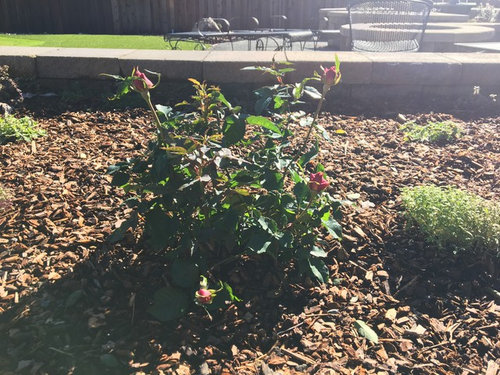



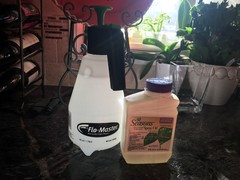
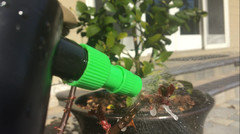
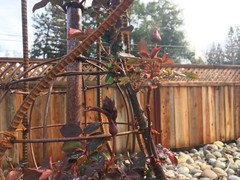
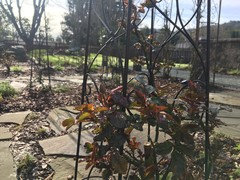


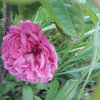
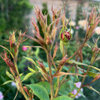
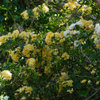
roseseek